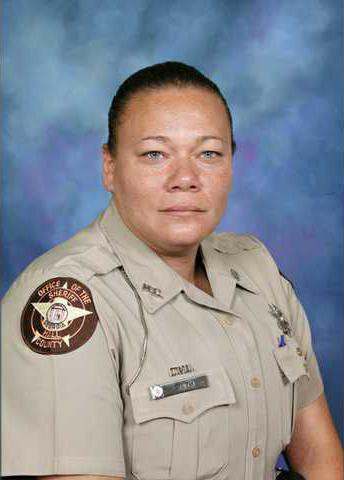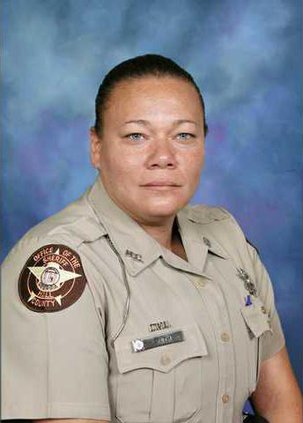The equivalent of at least one classroom packed full of Hall County school children live in homes plagued by domestic violence.
The effects that the shouting, threats and physical violence they witness has on their fragile psyches can lead to post-traumatic stress disorders that follow them into adulthood, local advocates said Thursday.
Judicial, educational and public outreach officials gathered Thursday at Gainesville’s Peach State Bank for the fifth annual Domestic Violence Breakfast and Briefing. Children were the focus.
Gateway Domestic Violence Center Education Coordinator Becky Ruffner said the center made 230 presentations in Hall and Gainesville public schools last year. Of the 4,000 elementary, middle school and high school students who attended the programs, about 35 came forward privately to talk about their troubled home lives.
"Ideally, we’re hoping to do a prevention program," Ruffner said. "Sometimes it turns into an intervention program."
Some children in homes torn by domestic violence may show symptoms of other disorders, said Kate Hoffman, a mentor program coordinator for Center Point, a Gainesville nonprofit that offers counseling, mentoring and religious education.
"You may see a child who looks like he has Attention Deficit Hyperactivity Disorder," Hoffman said. "They’re squirmy, they’re irritable, they react to perceived threats, whether they’re real or not.
"Repeated trauma over time can actually change brain chemistry," Hoffman said. "Just giving them a pill isn’t going to be enough — you have to look at resolving the trauma that’s going on at home or nothing’s going to improve."
Hall County Sheriff’s Deputy Ana Smith, one of nine officers in the agency’s domestic violence unit, said children "are the ones who suffer the most."
Smith, who has worked in the unit for more than five years, was recognized Thursday as Domestic Violence Officer of the Year for the Northeastern Judicial Circuit. She and her colleagues are called out to homes when initial responding officers believe domestic violence may have occurred.
Sometimes, they collect evidence and make arrests. At other times they may only mediate, if there’s been no physical violence.
Smith wants to see Georgia law changed for children who witness loud, terrifying quarrels. Under the current law, an offender can be charged with cruelty to children in the third degree if he or she commits a felony or domestic violence battery in the presence of a child.
But if someone commits misdemeanor simple assault — generally a threat of violence with no actual physical contact — and a child sees it, that person cannot be charged with child cruelty.
"I think that’s wrong," Smith said. "Because when they see someone raise a fist three or four times in a 48-hour period, that’s very traumatic. It puts someone on a high level of stress, and someone needs to be charged with that.
"I’m working to get that changed, but I need help," Smith said.
Asked what she enjoyed about her job, Smith said half-jokingly, "Takin’ ’em to jail."
She then added, "Seeing the victims able to stand on their own feet probably gives me the most satisfaction."

